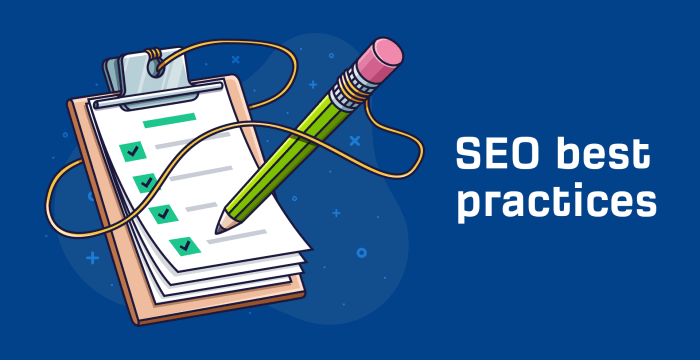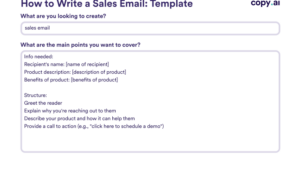SEO Best Practices – Best Practices set the stage for optimal website performance by enhancing visibility and ranking. Dive into the world of with key techniques and strategies that can transform your online presence.
Explore the realm of on-page, off-page, and technical to unlock the secrets of organic traffic growth and long-term success.
Importance of Best Practices: SEO Best Practices

Following best practices is crucial for website visibility and ranking in search engine results pages. By implementing good strategies, websites can improve their chances of being discovered by users searching for relevant content or products online. This can lead to increased organic traffic, higher click-through rates, and ultimately, more conversions.
Impact on Organic Traffic Growth
- Optimizing website content with relevant s can help improve search engine rankings, making it easier for users to find your site.
- Creating high-quality, engaging content that attracts backlinks can enhance your website’s authority and credibility, leading to more organic traffic.
- Improving website speed and mobile-friendliness can enhance user experience, resulting in higher search rankings and increased organic traffic.
Benefits of Adhering to Best Practices
- Long-term success: Implementing best practices can help sustain organic traffic growth over time, providing a consistent source of website visitors.
- Cost-effectiveness: Compared to paid advertising, investing in can yield long-term benefits and a higher return on investment.
- Competitive edge: By staying up-to-date with trends and best practices, websites can outperform competitors and maintain a strong online presence.
On-Page Best Practices
In the world of , on-page optimization plays a crucial role in improving your website’s visibility and ranking on search engines. By implementing key on-page techniques, you can enhance your website’s performance and attract more organic traffic.
Optimizing Meta Tags, Headings, and Content:
Optimizing Meta Tags
Meta tags, including title tags and meta descriptions, are essential for informing search engines about the content of your web pages. By including relevant s in your meta tags, you can improve your chances of ranking higher in search results.
Optimizing Headings, SEO Best Practices
Headings, such as H1, H2, and H3 tags, help search engines understand the structure and hierarchy of your content. By using headings strategically and incorporating s naturally, you can make your content more readable and -friendly.
Optimizing Content
Creating high-quality, relevant content is key to successful on-page . By focusing on providing valuable information to your audience and incorporating targeted s, you can improve your website’s authority and relevance in the eyes of search engines.
Significance of Internal Linking:
Internal Linking Benefits
Internal linking refers to linking to other pages within your website. This practice helps search engines crawl and index your website more effectively, leading to better visibility in search results. Additionally, internal linking can improve user experience by guiding visitors to related content on your site.
Importance of High-Quality Content:
Creating Quality Content
Search engines prioritize websites that offer valuable, engaging, and informative content to users. By consistently producing high-quality content that addresses the needs and interests of your target audience, you can establish your website as a reliable source of information and improve your performance.
Off-Page Best Practices

When it comes to Off-Page , backlinks play a crucial role in influencing search engine rankings. These are links from other websites that direct users back to your site, signaling to search engines that your content is valuable and trustworthy.
Backlinks and Their Impact
Backlinks act as a vote of confidence for your website. The more quality backlinks you have from reputable sites, the higher your site is likely to rank in search engine results pages (SERPs). However, it’s important to focus on earning quality backlinks rather than quantity, as spammy or irrelevant backlinks can actually harm your efforts.
- Focus on creating engaging and high-quality content that naturally attracts backlinks from other sites.
- Reach out to influencers or industry experts to collaborate on content or guest posting opportunities, which can result in valuable backlinks.
- Utilize social media platforms to promote your content and attract organic backlinks from users who find your content valuable.
Domain Authority and Off-Page
Domain authority is a metric developed by Moz that predicts how well a website will rank in search engine results. It is influenced by various factors, including the quality and quantity of backlinks pointing to a website. Websites with higher domain authority are more likely to rank higher in SERPs, making it essential to focus on building a strong backlink profile to improve your site’s domain authority.
- Monitor your website’s domain authority using tools like Moz or Ahrefs to track improvements over time.
- Focus on earning backlinks from authoritative and relevant websites within your industry to boost your site’s domain authority.
- Avoid engaging in black hat tactics, such as buying backlinks, as they can harm your site’s domain authority and overall performance.
Technical Best Practices
When it comes to Technical , there are several key practices that can significantly impact your website’s search engine rankings. From website speed to mobile optimization and structured data, these elements play a crucial role in improving your performance.
Website Speed:
Having a fast-loading website is essential for both user experience and rankings. Search engines like Google prioritize websites that load quickly because it provides a better experience for users. Slow-loading websites can lead to higher bounce rates and lower rankings in search results. To improve website speed, optimize images, minify CSS and JavaScript files, enable browser caching, and utilize a content delivery network (CDN).
Mobile Optimization:
With the increasing use of mobile devices, optimizing your website for mobile is no longer optional – it’s a necessity. Mobile optimization not only improves user experience but also impacts rankings. Google uses mobile-first indexing, which means it primarily uses the mobile version of your site for indexing and ranking. To optimize for mobile, ensure your website is responsive, uses a mobile-friendly design, and prioritizes mobile user experience.
Structured Data:
Structured data, also known as schema markup, helps search engines understand the content on your website better. By adding structured data to your website, you can provide search engines with additional information about your content, such as reviews, ratings, events, and more. This enhances search engine visibility and can lead to rich snippets in search results, making your website more appealing to users. Implementing structured data can positively impact your performance and help your website stand out in search results.





